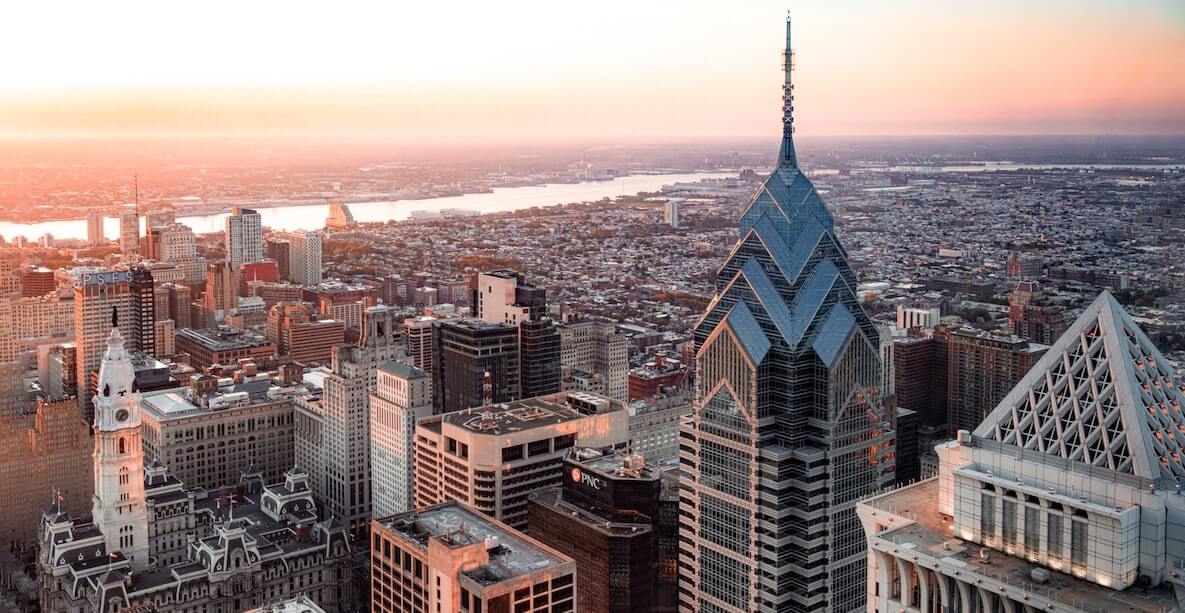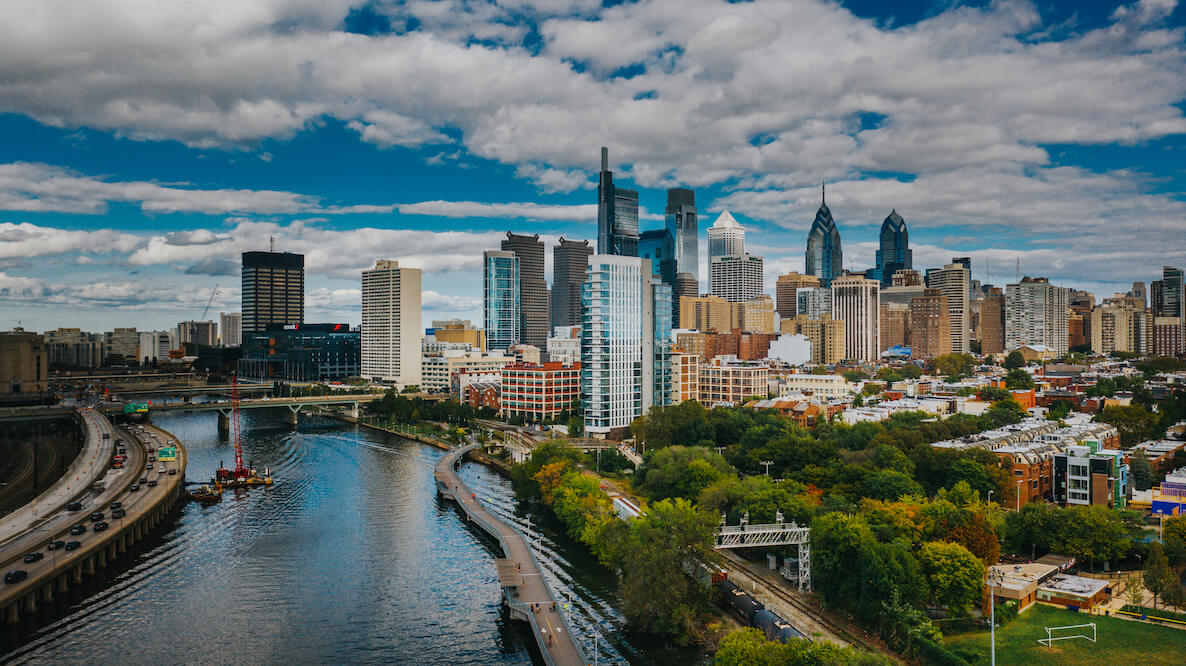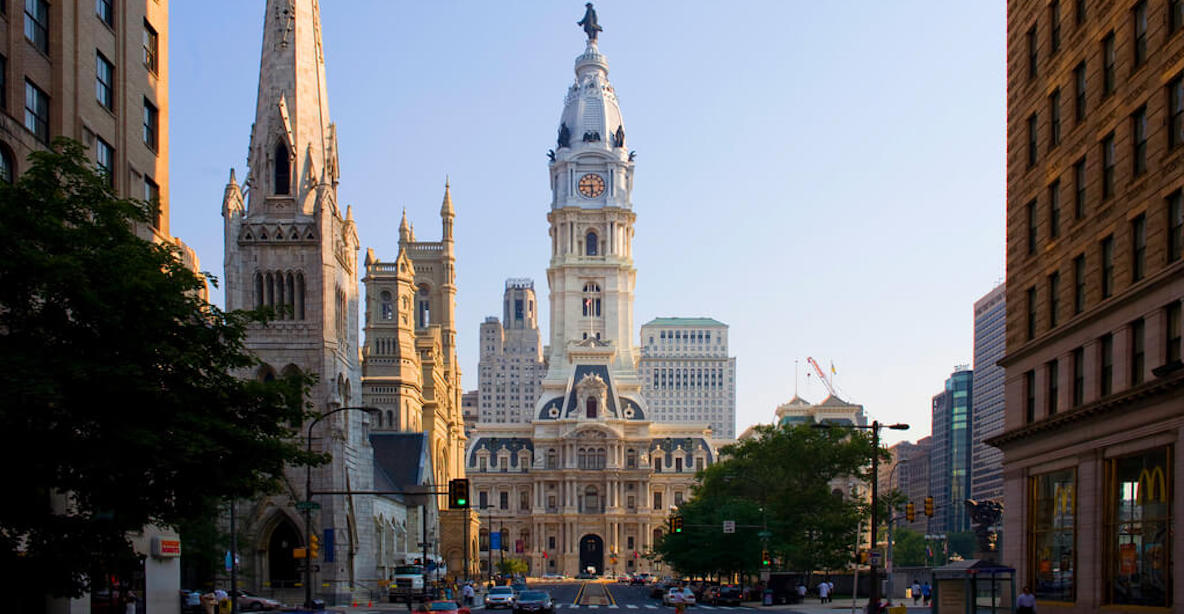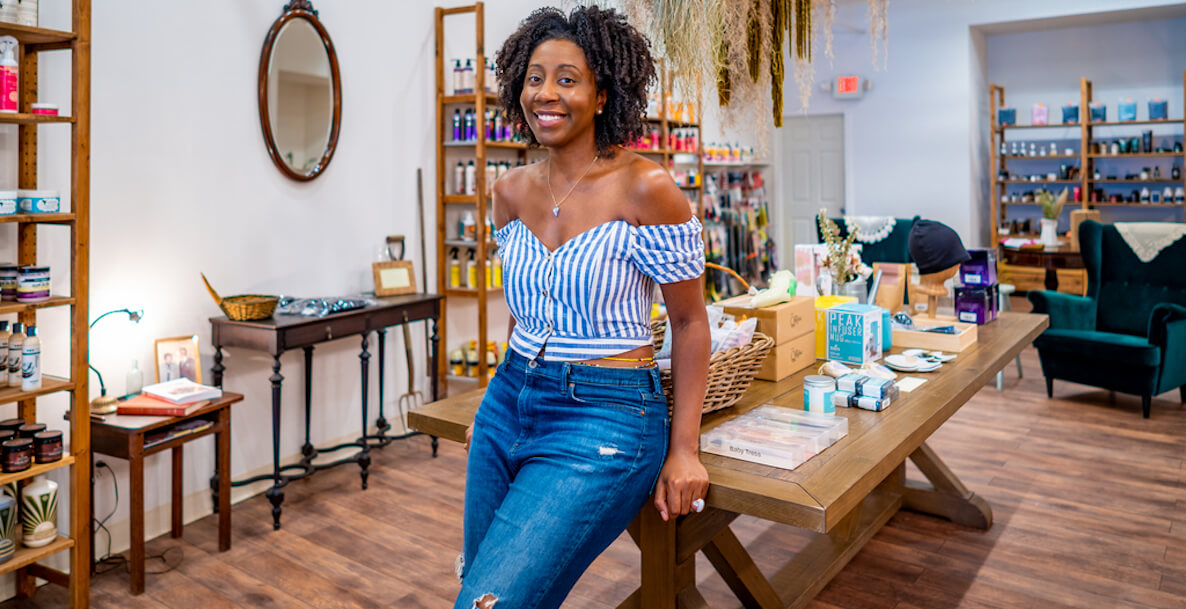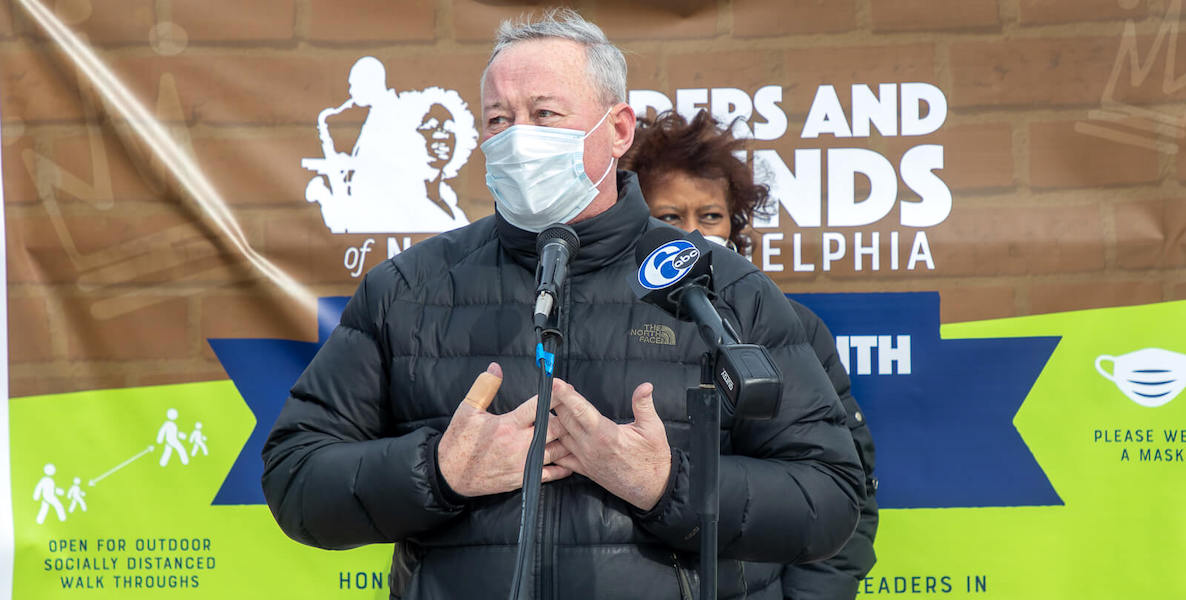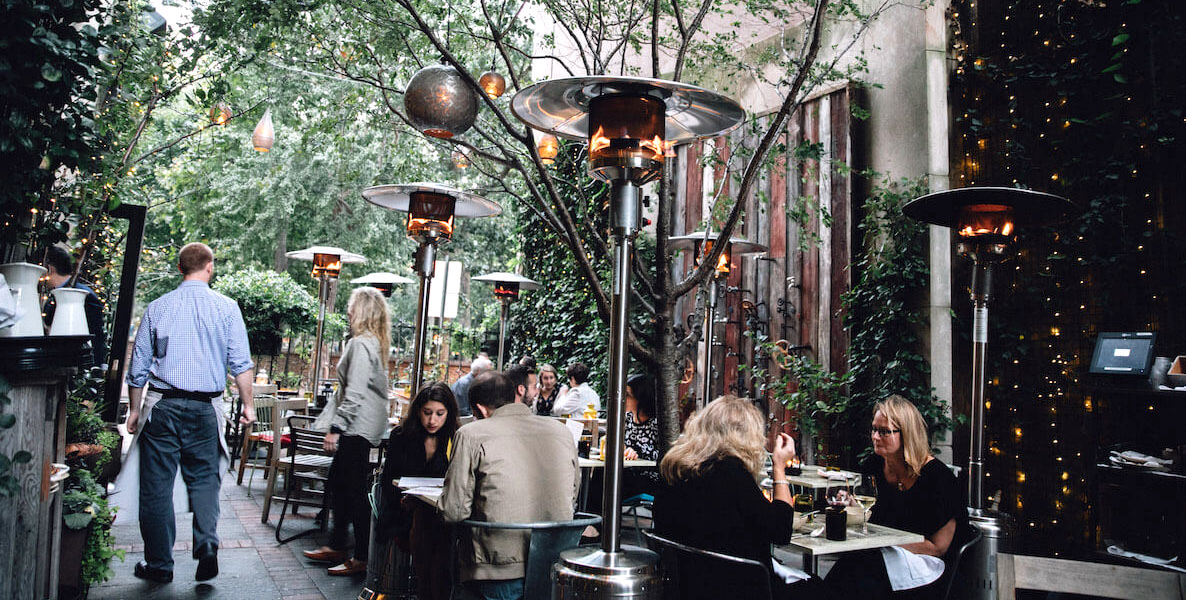Now that Covid vaccines are more widely available, residents and city leaders have begun to focus on the “return to normalcy” that we have all been pining for these last 18 months. But before we rush to get back to business as usual, we should first spend some time reflecting both on how we’ve changed during this time, and what we mean by “normal.”
Simply rushing to create a facsimile of a pre-pandemic Philadelphia is a mistake because Covid-19 has changed us in ways that we are yet to be aware of, let alone fully understand.
Moreover, we should not squander this opportunity to redefine the new normal in a city where reform is so hard to come by. Philadelphia is a city where residents notoriously “love change, as long as everything stays exactly the same.”
MORE ON LOCAL INNOVATION DURING THE PANDEMIC
We are the municipal version of the Death Valley rocks whose imperceptible movement across the desert floor is belied only by the tell-tale tracks they leave behind marking their progress. We are Philadelphia—the City of Brotherly Love and Sisterly Inertia.
But during the pandemic, something incredible happened—bold and transformative proposals and decisions that normally would have taken years to implement were announced and in place in days. Bureaucratic red tape that had ensnared many a small business was gone. Our city leaders acted with a unified sense of urgency and focus rarely seen before. It was absolutely glorious.
Unfortunately, the City is already showing a desire to undo some of those bold actions and get back to “normal.” However, normal isn’t necessarily good. Normal is simply what we are used to, and living in Philadelphia means a lot of really terrible things are normal. Litter is normal. The sound of gunshots is normal. Almost getting mowed down in a crosswalk by a car is normal.
So before we rush back to embrace our halcyonic, pre-Covid lives, I would urge our City leaders to reject the hallmarks of “normalcy” that have held us back, and instead ride the pandemic-induced progress we saw over the last year by:
1. Continuing Online Participation at Public Meetings
Living in Philadelphia is like serving on a nonprofit board, where every resident is required to attend at least one monthly public meeting to ensure we’re going in the right direction. As the “birthplace of American Democracy,” any meaningful change to the city landscape requires a robust public engagement process and approximately 37 public meetings before a community vote is taken. (I’m only being slightly hyperbolic.) Unfortunately, this model of civic participation often excludes many of the voices that the City wants and frankly needs to hear from the most.
We are the municipal version of the Death Valley rocks whose imperceptible movement across the desert floor is belied only by the tell-tale tracks they leave behind marking their progress. We are Philadelphia—the City of Brotherly Love and Sisterly Inertia.
The biggest problem with requiring in-person attendance at City meetings is that most important public meetings are held in the middle of the traditional 9 to 5 workday. As a regular attendee of both City Council and Zoning Board of Adjustment meetings, I have sat next to many individuals who were forced to take off work in order to have the opportunity to speak during the public comment period. There shouldn’t be an entry fee for civic engagement, but for far too many Philadelphians, there is a direct cost for participation.
In addition to the problematic time, both City Council and the Zoning Board of Adjustment hold their meetings in Center City. For caretakers or individuals with health issues or a disability, attending a local neighborhood meeting, let alone making a trek to City Hall, is a nonstarter.
The administration, City Council, School Board and the many neighborhood Registered Community Organizations should all be recognized for the fantastic job they did pivoting to online participation during the pandemic. Instead of having to come to City Hall to provide public comment, or find a babysitter to attend a community meeting, people are able to participate remotely.
Residents shouldn’t have to choose between putting food on the table for their families and having their voices heard by city leaders. Those uncomfortable with, or without access to, technology should still have the option to participate in person. We could make it even easier to do so by taking a cue from Ithaca, NY, where Mayor Svante Myrick in 2019 implemented free child care for all council meetings.
If we truly value the input of residents, let’s make it as easy and accessible as possible for residents to provide it.
2. Rethinking Public Spaces
In the next few months, Philadelphia has a critical decision to make. Cars or people? Up until now, cars have been the clear winner. Whether maintaining extra travel lanes to lower travel times, investing in road widening projects instead of bike infrastructure or prioritizing parking spaces over parklets, cars have come out on top time and time again.
The pandemic and its strict stay-at-home orders gave city officials both the excuse and the opportunity to implement changes to our streetscapes that urbanists throughout the city have long been calling for. Let’s ensure that they don’t disappear when the virus does.
Streateries
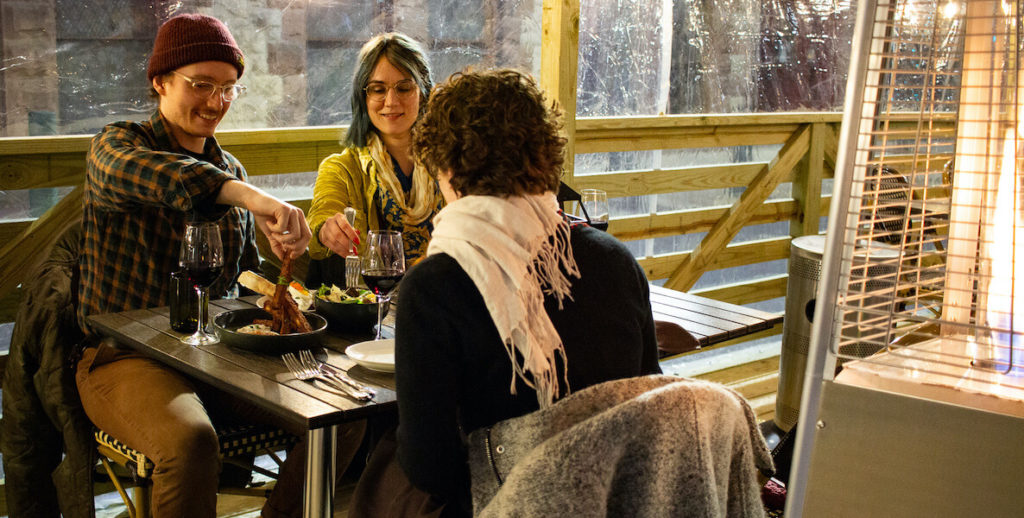
Streateries became a vital lifeline for restaurants during Covid—allowing them to keep serving patrons in the face of indoor dining bans. Thanks in large part to streateries, Philadelphia’s vibrant restaurant scene will emerge from the pandemic bruised and battered, but still alive.
By eliminating a handful of on-street parking spaces, restaurants could continue to operate, generating far more revenue through the drink tax for the city and the School District than those parking taxes could hope to. This is a policy that is good for residents, small businesses, as well as the City’s general fund.
During the pandemic, something incredible happened—bold and transformative proposals and decisions that normally would have taken years to implement were announced and in place in days. Our city leaders acted with a unified sense of urgency and focus rarely seen before. It was absolutely glorious.
Undoubtedly, there are many people clamoring for the demise of streateries, eager to get their cheap on-street parking back. But if pouring billions into highway widening projects teaches us anything, adding more on-street parking just induces demand at a pace that will forever outstrip the supply.
Now more than ever, the City and the PPA need a long-term, strategic plan for managing parking in the city. Without a plan, we will never successfully manage the competing needs of residents, commuters, visitors and businesses. Parking in the city doesn’t have to be a zero-sum game, but it will remain that way without a strategic plan in place.
Open Streets
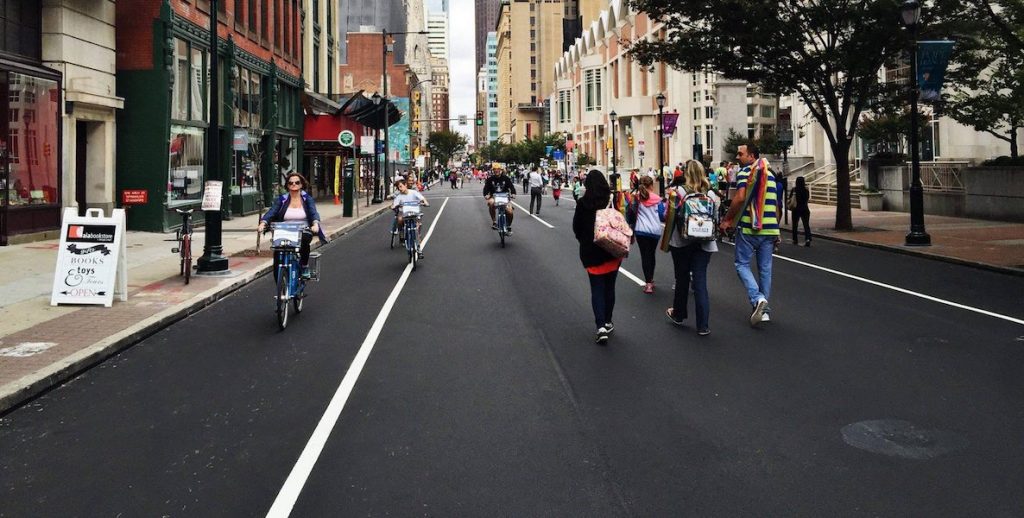
In addition to allowing streateries, the City also allowed certain major streets to be completely shut down to vehicular traffic. Martin Luther King Drive was closed to all cars and became a vital lifeline to residents during the quarantine.
Commercial corridors were also permitted to shut down vehicular traffic on weekends, including the Italian Market’s South 9th Street, 13th Street through the Gayborhood and South Street in the Headhouse District. Sansom Street’s restaurant row has been closed to car traffic for months.
Targeted commercial corridor closures give us the opportunity to support the rich cultural history of our neighborhoods throughout the city and ensure that music, food, art, dance and the community receive the priority and space they need to flourish on a regular basis. Moreover, these closures can and should be coordinated with the Mayor’s plan to bring back street sweeping. With modest investments in removable bollards, our city could be a significantly cleaner and more connected place to live.
3. Finding More Ways to Say “Yes”
One of my biggest criticisms of local government is that we tend to govern to the exception rather than the rule. We are a city that often looks for a way to say no, instead of looking for a way to say yes. We shove stacks of paper forms at folks wanting to turn a trash-strewn city-owned lot into a garden, while lecturing them on liability. And we actively embrace hostile design when we can’t make progress on the underlying issue. When we as a city can’t keep up with emptying public trash cans, for example, our solution isn’t to hire more workers, but to get rid of public trash cans. There you have it, problem solved—no more overfilled bins.
During the pandemic, the City threw out its usual playbook of “no, you can’t do that.” It seemed more fluid and responsive to resident and business needs than I’ve ever previously seen. For example, restaurants that previously needed a City Council ordinance and bond to apply for a sidewalk café license were able to receive a permit with significantly less paperwork, time and financial burden required.
The City reworked this system as one designed to maximize participation, instead of one designed to minimize problems. In other words, rather than governing to the exception, it governed to the rule and trusted its staff to address any problems if they arose.
I hope the City will take the many successes it had during the pandemic as a lesson moving forward. By finding more ways to say yes, sometimes a bad actor will slip through, but the opportunity cost we pay in avoiding that scenario is far greater than the trouble of addressing the occasional issue when it arises.
Lauren Vidas is an election law attorney and government relations professional in Philadelphia where she has spent over a decade working in and around city government. Follow her on Twitter or sign-up for her newsletter to stay on top of the workings of City Hall.
Header photo courtesy Talula's Garden



